New Releases
Review: Blackhat
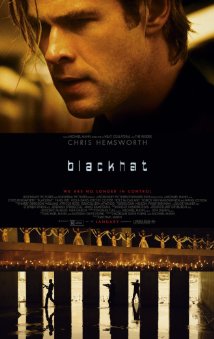 As someone whose alter-ego has a career in IT, I approach a film about hackers with lowered expectations. I don't want to dislike it, but I certainly have a heightened expectation that I will dislike it due to glaringly inaccurate portrayals of people doing things that to a trained eye are utterly ridiculous. What I never expected was that Blackhat would maintain an above-average level of accuracy in its portrayal and that my problems would mostly be the more mundane complaints a critic might have for any film that is just not very good.
As someone whose alter-ego has a career in IT, I approach a film about hackers with lowered expectations. I don't want to dislike it, but I certainly have a heightened expectation that I will dislike it due to glaringly inaccurate portrayals of people doing things that to a trained eye are utterly ridiculous. What I never expected was that Blackhat would maintain an above-average level of accuracy in its portrayal and that my problems would mostly be the more mundane complaints a critic might have for any film that is just not very good.
My largest complaint is a technical problem that has little enough to do with computers. The film is, even to a lay person, unfinished. A subpar audio mix makes dialogue at times difficult to understand. Poor or incomplete color correction results in inconsistency in the picture, which in the final action scenes looks exactly as if we're watching at home on a television with a 120fps frame rate enabled. This was the first movie that director Michael Mann shot completely without film, but his first digital outing is no excuse for failure to remove the "stock footage" watermark from a shot in the first five minutes of the film.
Reflecting on the experience, it seems as though Mann must have been in a tug-of-war with writer Morgan Davis Foehl, as he takes a methodical, largely boring script with uninteresting paper-cutout characters and tries to pull from late 80s and early 90s influences to liven it up. The camera zooms past a technician onto a keyboard and then inside a computer to a circuit board and then still deeper to a microscopic level where we see pulses of energy travelling through individual transistors in a chip. I could have almost thought for a moment I was watching Lawnmower Man or Electric Dreams.
"Blackhat" is a term applied to computer hackers who use their skills for good instead of nefarious purposes, staying on the right side of the law, a fact not mentioned in the film. The fact is also not precisely applicable to star Chris Hemsworth's character Nicholas Hathaway, a felon convicted for hacks that cause millions of dollars in damages to several banks. Actually, Hathaway, with skills that supposedly make him the only man capable of helping the FBI (in the form of Viola Davis) track down the bad guys, doesn't really do much in Blackhat that even qualifies as hacking. His biggest feat is tricking a director of security at the NSA into clicking an email attachment that wouldn't fool my mother.
Review: Selma
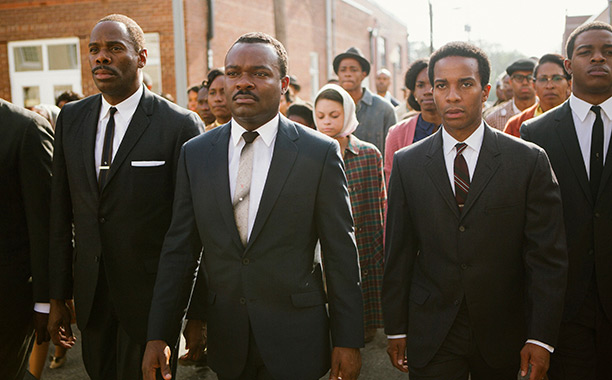
"What we do is negotiate, demonstrate, resist."
-- Martin Luther King, Jr. in Selma
Director Ava DuVernay and a combination of other talent create in Selma a deeply emotional, standout work about a short moment in history: the early months of 1965. The historical drama, attributed to screenwriter Paul Webb although DuVernay herself rewrote most of it, revolves around Martin Luther King, Jr. (British actor David Oyelowo, Lincoln, Middle of Nowhere) and other leaders of the Southern Christian Leadership Conference as they plan nonviolent protest in Selma, Alabama.
At this point in history, segregation had been outlawed, but county clerks continued to turn away black Southerners who attempted to register to vote through "literacy" tests and other deceptive means. In the movie, activist and preacher King pleads with President Lyndon Baines Johnson (British actor Tom Wilkinson, Belle, Michael Clayton) to enact voting rights legislation.
Review: Big Eyes
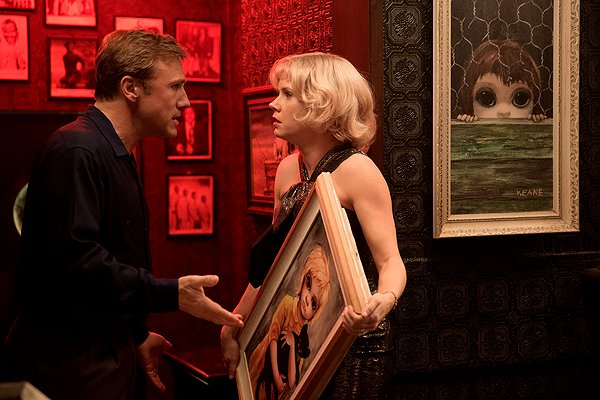
Twenty years after his only other biopic (Ed Wood), director Tim Burton returns to the genre with the movie Big Eyes. Co-writers Scott Alexander and Larry Karaszewski (who also wrote Ed Wood) combine elements of the fantastical with the all-too-real story of a man taking credit for a woman's work. Amy Adams (American Hustle, The Muppets) stars as Margaret Keane, whose paintings of haunted-looking children were all the rage in 1960s America ... but her husband Walter (Christoph Waltz, Django Unchained) passed them off as his own.
Burton tells Keane's story using a bright palette, giving a smooth look to his 1960s San Francisco setting, growing even bolder in color when the setting moves to Hawaii. There's a blithe feeling to Big Eyes, even as the movie tackles serious issues of the male-dominated mid-century canon of modern art and this female artist's loss of power in the face of her smooth operator/con artist husband. Adams as Margaret speaks with a soft Southern cadence opposite a strident Waltz, whose own bizarro accent here signals that he can't decide which part of the States his character is supposed to be from.
Review: Into The Woods
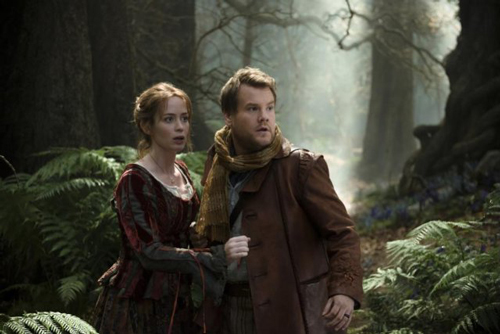
Fairy tales may appeal to young and old alike, but before the contemporary sanitized versions many of these stories, deeply rooted in centuries old folklore, were quite grim and complex with both obvious and not-so-obvious meaning.
In the 1976 book Uses of Enchantment: The Meaning and Importance of Fairy Tales, psychologist Bruno Bettelheim analyzed the symbolic motifs and emotional importance of fairy tales, including those collected and published by the Brothers Grimm. He opined that the darkness and brutality of abandonment and death gave children the ability to process their fears and learn from the moral of each story.
The film adaptation of Stephen Sondheim 1987 musical Into the Woods weaves several favorite tales into one complex story for adults with many of our favorite characters. The base story created for this production is that of "The Baker and his Wife," a barren couple (James Corden and Emily Blunt) who desperately want to have a child.
Review: The Imitation Game
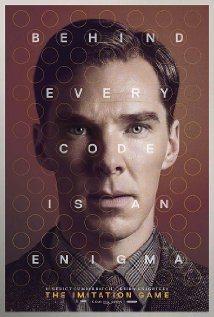 Although working at this year's Austin Film Festival had many great perks, one of the not-so-great parts was missing out on some of the highly-anticipated marquee films. This is why I jumped at the chance to see The Imitation Game, though I now see that maybe I didn't need to jump so quickly.
Although working at this year's Austin Film Festival had many great perks, one of the not-so-great parts was missing out on some of the highly-anticipated marquee films. This is why I jumped at the chance to see The Imitation Game, though I now see that maybe I didn't need to jump so quickly.
It's clear that Benedict Cumberbatch (famously known for his role on Sherlock) carries this film -- not just because the story focuses on his role as Alan Turing, but because his performance stands out amongst all of his famous castmates, including Keira Knightley, Matthew Goode and Charles Dance.
That said, it seems that Cumberbatch's snarky demeanor as Sherlock Holmes is what got him cast in this role. The Imitation Game seems a fitting title because his performance is not unlike the role he's portrayed for the last three seasons on Sherlock. If you're unfamiliar with the show, then perhaps you will not notice this similarity; being a big fan myself, it stood out almost instantly. In fact, most of the cast seemed to be cookie-cutter replicas of characters they have played before: stale, expired and certainly not fresh.
The story is strong, yet it doesn't know which theme it relies on. Focusing on Turing's famous crack of the Enigma coding machine during WWII, the film stays on course -- until it takes a few pit stops to reflect on Turing's struggle with homosexuality. Although it's a powerful performance, I felt confused on what emotion to resonate with throughout. It seems as if the filmmakers were taking on some sort of studio note to try and make Turing more sympathetic. Although it does achieve this, it feels forced.
It surprises me that The Imitation Game is making its debut on Christmas Day. Perhaps a marketing team felt that Cumberbatch and Knightly would draw in ticket sales, but the film itself doesn't have that grandiose feel most holiday releases have. It does seem that this role will probably draw some Oscar buzz for Cumberbatch -- it already seems to have drawn an 8.4 rating out of a scale of 10 on IMDb. Maybe I'm just a holiday release Scrooge; maybe a box-office Christmas miracle will happen after all.
Review: The Interview
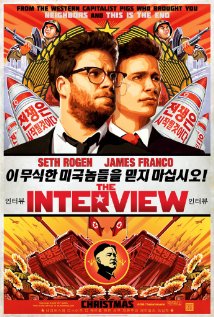 The great The Interview saga of 2014 has reached its apex. After the film was publicized, parent studio Sony Pictures found itself victim to the largest, most destructive and costly computer hacking operation in history. Emails, personal information of employees including social security numbers, and untold other secrets were not only stolen, but partially released by the culprits with a threat to do more damage if the movie was released. Last week, Sony caved to the major theater chains and cancelled the release, spawning innumerable conversations about free speech in the digital age.
The great The Interview saga of 2014 has reached its apex. After the film was publicized, parent studio Sony Pictures found itself victim to the largest, most destructive and costly computer hacking operation in history. Emails, personal information of employees including social security numbers, and untold other secrets were not only stolen, but partially released by the culprits with a threat to do more damage if the movie was released. Last week, Sony caved to the major theater chains and cancelled the release, spawning innumerable conversations about free speech in the digital age.
And just before that, I got to see it along with 200-ish other attendees at Butt-numb-a-thon, the annual birthday party for AICN founder Harry Knowles where vintage films are celebrated alongside big Hollywood premieres and sneak peeks. The Interview played fifth in the lineup of 12 films, immediately after Paul Thomas Anderson's Inherent Vice. Directors Evan Goldberg (This is the End) and Seth Rogen apologized during their introduction, saying they didn't expect to follow a Paul Thomas Anderson movie. In fact, the madcap hilarity was the perfect pick-me-up following the dark and low-key Inherent Vice as we approached the halfway mark of 24 hours of movie watching.
The Interview asks a question many have probably pondered: When a journalist is given an opportunity to interview one of the most hated dictators on the planet, wouldn't the U.S. government become involved to attempt an assassination? And would the journalist want to go through with it? Of course, if you've seen the previous work of those involved in this comedy, you know what to expect. Rogen and costar James Franco are this century's version of The Three Stooges, minus Moe (or perhaps replacing Moe with "Mo," the near-homosexual bro-fessional screen relationship they have together).
In the midst of their antics, I realized The Interview, like many great comedies, doesn't just lampoon its subject. It paints Korean dictator Kim Jong-Un as a caricature, a spoiled man-child twisted by his father into a creature that loves American culture but responds to criticism with extreme force and explosions of rage. But, it also pokes fun at the U.S. government, the traditional news media, and the American public's gluttonous fascination with info-tainment.
Review: Unbroken
 Earlier this year, Louie Zamperini died at the age of 97. He was the son of Italian immigrants, born in 1917 in New York state. His family relocated to Torrance, California where he was on the verge of becoming a hooligan until his older brother Pete got him involved with the school track team. By the time he was 19, he had qualified for the 1936 Berlin Olympics in the 5000-meter race.
Earlier this year, Louie Zamperini died at the age of 97. He was the son of Italian immigrants, born in 1917 in New York state. His family relocated to Torrance, California where he was on the verge of becoming a hooligan until his older brother Pete got him involved with the school track team. By the time he was 19, he had qualified for the 1936 Berlin Olympics in the 5000-meter race.
An entire feature-length film could probably be made just about his career as a runner, but the full scope of the man's endurance is told here in Angelina Jolie's second directorial effort. Unbroken really feels like three movies in one, weaving in the story of Zamperini's Olympic success, his time in the U.S. Army Air Force during World War II and his eventual struggles as a prisoner of war in a Japanese camp. In the film, British actor Jack O'Connell (Starred Up) gives an emotionally raw and physically demanding career-making performance as Zamperini.
Joel and Ethan Coen adapated Laura Hillenbrand's 2010 book (with screenplay assistance from Richard LaGravenese and William Nicholson) and I think that the first half of the film truly shines as it shifts through time from Zamperini's childhood to the plane crash in 1943 over the Pacific Ocean that found him and two other fellow soldiers (Finn Wittrock, Noah and Domhnall Gleeson, About Time) stuck in a life boat for 47 days.
There is an intensity to the film's air combat sequences that really make you feel as though you're in the plane with these young men, despite the fact that the quality on some of the effects is limited. As the story unfolds, it truly makes you wonder how anybody could stay so strong for so long. Zamperini never gave up hope, no matter what happened to him, that he would survive. It was difficult inititally for me during the scenes where the men where stranded in the Pacific Ocean to not recall last year's All Is Lost, but that was a fleeting feeling. As days turn to weeks, the desperation between the men becomes palpable and I began to forget that we hadn't even gotten to the worst part of Zamperini's life.
Review: Annie

Let me preface this review by acknowledging my lifelong attachment to the 1982 movie Annie. That movie's soundtrack was one of the few original cassettes my sister and I as small kids owned that wasn't a copy my dad recorded off records checked out from the library (yes, I am totally dating myself here). I had all the songs memorized as a kid, and still remember most of the lyrics today to "Dumb Dog," "You're Never Fully Dressed (Without a Smile)," "Maybe," "Tomorrow"... you get the idea. I came in skeptical of the remake/new take. If my musical-loving friend hadn't asked me to get her into the preview screening, I might have skipped the whole thing. And that would have been a shame.
This 2014 version caused much hullabaloo before production even began as charmer Quvenzhané Wallis (Beasts of the Southern Wild) was cast in the title role. Racists took to social media to whine about a black actress playing Annie, others applauded the forward-thinking of the casting, and I just wondered if she could sing. After seeing the film I will tell you, dear reader, she can sing -- with a little help from autotune.
Review: The Hobbit: The Battle of the Five Armies
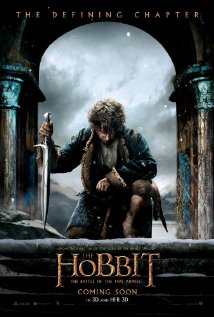 The greatest adventure may be what lies ahead, but The Hobbit: The Battle of the Five Armies is the end of the road for Peter Jackson's time in Middle Earth. The 13 years since the release of The Lord of the Rings: Fellowship of the Ring have seen the growth of the franchise into an international phenomenon while the digital filmmaking magic used in its creation has become commonplace in the industry, expanded and improved.
The greatest adventure may be what lies ahead, but The Hobbit: The Battle of the Five Armies is the end of the road for Peter Jackson's time in Middle Earth. The 13 years since the release of The Lord of the Rings: Fellowship of the Ring have seen the growth of the franchise into an international phenomenon while the digital filmmaking magic used in its creation has become commonplace in the industry, expanded and improved.
I was fortunate to have the chance to wait and see the presentation during the private Ain't It Cool Butt-numb-a-thon event, where it played in the HFR 48 frames per second but in 2D, not 3D projection -- the first (and perhaps only) time the film was screened for an audience with this kind of projection in the United States. While I find HFR with 3D to be headache-inducing, I quickly adjusted to the higher frame rate when it was 2D.
This third installment is appropriately named. Most of The Hobbit: The Battle of the Five Armies is concerned with events that play out as different races converge to loot the treasure under the mountain after the death of Smaug. But after the buildup over two previous films, the tumultous battle with the dragon, the climax of J.R.R. Tolkien's novel becomes merely an opening sequence here to set the stage for events that don't make much logical sense.
Thorin, leader of the company of dwarves, has found himself returned to his home inside the mountain and sitting atop a pile of gold ... and suddenly loses his sense of right and wrong, succumbing to a mysterious "dragon sickness" within the span of about 5 minutes it takes Smaug to fly out of the mountain and start burning everything in sight. His sudden onset of avarice leads him, like a drug addict, to break his promises, alienate his friends, and cost him that which he holds most dear. Meanwhile, the orcs who have been chasing the company throughout the three films are converging on the mountain with an overwhelming force.
Review: Foxcatcher
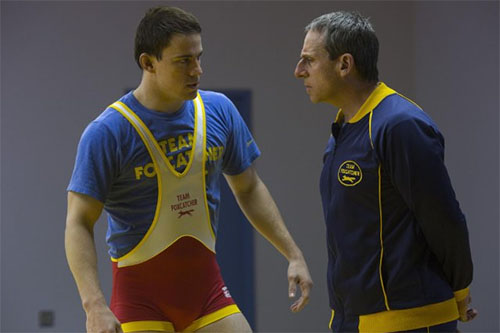
If you're rich, they call you eccentric instead of crazy.
John du Pont was plenty rich enough to be called eccentric. An heir to the du Pont family fortune, he had wealth almost beyond imagination, a fortune so intimidating that those who knew him -- especially anyone dependant on his philanthropy -- didn't dare call him insane.
Foxcatcher, however, dares calls him insane; it pulls no punches in its depiction of his erratic behavior and sometimes terrifying mental instability. With a brilliant performance by Steve Carell as John (by far the best of Carell's career), the film paints him as a deeply troubled man whose wealth couldn't buy him self esteem or sanity.
Based on a true story, Foxcatcher focuses on John's interest in wrestling. (He led an eclectic life; he also was a philatelist and accomplished ornithologist.) As the film opens in 1987, John recruits Olympic wrestling gold medalist Mark Schultz (Channing Tatum) for a wrestling team he hopes will compete in the 1988 Olympics. The team, named Foxcatcher after the du Pont family's thoroughbred racing stable, trains at a state-of-the-art facility John built on his Pennsylvania farm.

